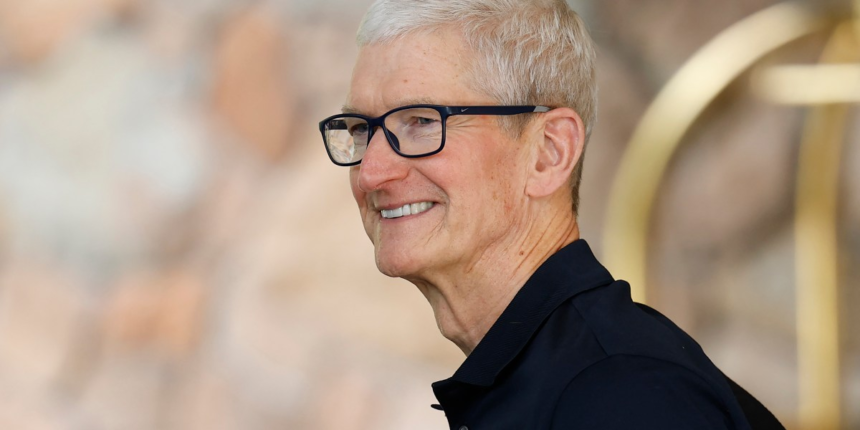The company reached $94 billion for the quarter ending June 28, driven by strong iPhone demand, surging services revenue, and solid performance across international markets, representing a 10% increase from the same time last year. Earnings per share came in at $1.57, well above the $1.43 analysts had forecast. Net income rose 12%, while gross margin ticked up to 46.5%.
Despite the positive results, the company received a subdued response from investors, with its stock rising just over 2% in after-hours trading. Apple has already been dealing with a rough year, and the company’s stock price has dropped 17% year to date.
The somewhat muted reaction is likely down to a couple of ongoing sore points for Apple: the AI race and President Trump’s tariffs on China and India.
Kate Leaman, chief market analyst at AvaTrade, told Fortune that Apple was clearly nervous about the impact of further tariffs.
“The risks to Apple are real,” she said. “Regulation is coming and tariffs are back in the headlines, with the US still locked in negotiations with China. And for firms like Apple, global politics and supply chains still matter a lot.”
The tariff issue looks set to get worse for the tech giant before it gets better, with expected cost hits rising next quarter.
“For the September quarter, assuming the current global tariff rates, policies, and applications do not change for the balance of the quarter and no new tariffs are added,” Cook said on Thursday’s earnings call. “We estimate the impact to add about $1.1 billion to our costs.”
Wedbush’s Dan Ives called tariffs a “problem for Apple” despite the company continuing to focus on production in India and the fact that the majority of iPhones sold in the US are now being made in the country rather than China, which has faced the most aggressive tariffs from the Trump administration.
“Trade policy remains unsettled and uncertain, and Apple is acutely aware of the importance of remaining on the right side of the administration, lest it face increasing ire and tariff risk,” Forrester’s VP principal analyst Dipanjan Chatterjee said. “It’s no surprise that Tim Cook was very particular in emphasizing several times Apple’s continuing investment in the United States and American innovation.”
Apple has faced criticism for years for the company’s apparent failure to capitalize on the AI boom, and the company’s most recent earnings don’t appear to have soothed investors.
“AI is the elephant in the room,” Ives, who has been less than impressed with the company’s AI efforts, said in a note. “While Apple is expanding its AI investments internally, the reality is it’s not moving the needle and patience is wearing thin about investors.”
“The AI Revolution is the biggest technology trend in 40 years and right now Apple is watching this from a park bench drinking lemonade while every other Big Tech company is racing ahead like F1 drivers building out its AI strategy and monetization plan,” Ives said. “This continues to be the big problem for Cook as in our opinion, this is a black eye moment for Apple and is the major anchor on the ship.”
Chatterjee called the company’s AI urgency “palpable” and observed a “quiet admission of its sluggishness in the acknowledgement that it may have to lean heavily on acquisition to compress timelines.”
“Rumors swirl about a Perplexity deal, and if that were to happen, it may greatly accelerate the elusive promise of a more effective Siri,” Chatterjee said.









